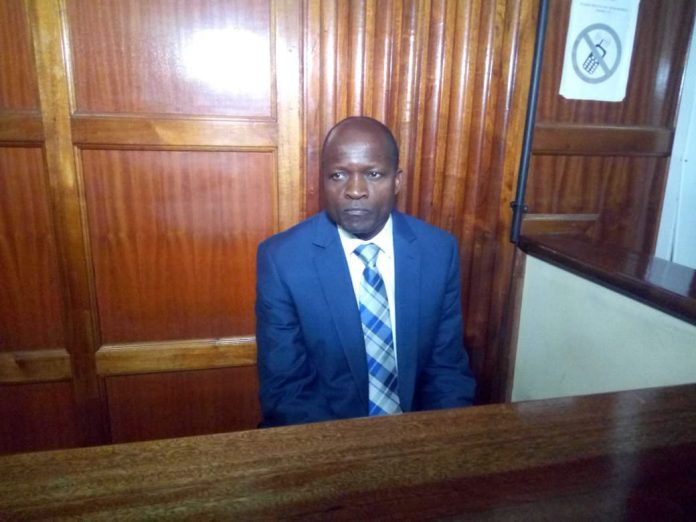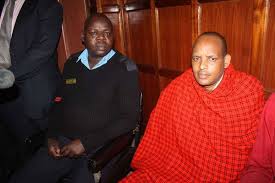Migori Governor Okoth Obado will remain at Industrial area GK prisons until Thursday 2pm when the court the court will rule on whether to release on bail.
During the hearing of the bail application before Justice Jessie Lesiit, the court heard that the accused has a right to be released on bail.
Obado was charged on 24th September with the murder of Rongo University student Sharon Otieno who was allegedly having an affair with him.
His lawyers Nicholas Ombija and Cliff Ombeta argued that murder is a bailable offense adding that denying him will be infringing his constitutional rights.
Ombija submitted that their client is ready and willing to present himself in court when requires if granted bail.
In addition, the court heard that the accused will not interfere with witnesses.
The prosecution should not forget there is witness protection. If a witness is vulnerable they should have put him there,” submitted Ombeta.
He added that the constitution provides that once an accused has been produced before court, then right to bail is self-activating.
It was the defense submissions that the prosecution had not tabled enough evidence to warrant denial of bail for Obado.
“The prosecution needed to come to court with compelling reasons which are not outlined in the constitution therefore we have to rely on the Dictionary,” said Ombeta.
“Finding the case to be complex is not the accused person’s problem, it’s the prosecution,” the court heard.
Ombeta added that the prosecution should not have rushed to bring Obado to court if they had not completed the investigations.
He added that the three alleged to be part of the suspects but are yet to be arrested has not showed how they are connected with the Governor.
Further, he submitted that the prosecution had not showed how his client being influential will interfere with witnesses.
However, according to the prosecution ‘everyone knows that the accused is very influential’.
The prosecution responded that denying Obado bail does not infringe his rights.
The court heard that the bail issue can be revisited at another stage of the case or after the vulnerable witnesses have testified.










